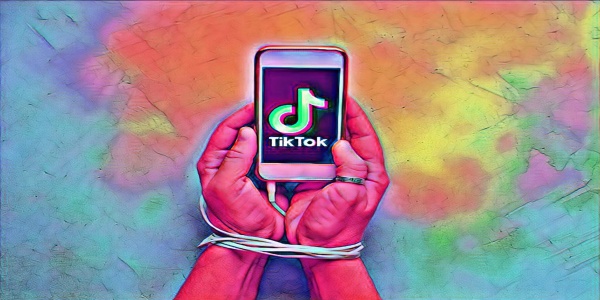TikTok dangers explained, as shortly as possible
TikTok is dangerous because it’s simple. Too simple.

There is a long post at Substack, arguing that “TikTok is a New Kind of Superweapon” that China is deliberately using to weaken the West.
I am not going to comment in any way the “weaken the West” thesis, but since the first part of that article describes well why TikTok may be uniquely dangerous for kids, here is my own summary of that section only.
With TikTok, you just start…
With TikTok, you don’t need to form a social network or list your interests for the platform to begin tailoring content to your desires, you just start watching, skipping any videos that don’t immediately draw your interest.
Tiktok builds a personality profile of each user by training itself on her watch habits. Since Tiktok videos are much shorter than YouTube ones, TikTok can acquire data much faster.
The result is a system that’s unsurpassed at figuring you out. And once it’s figured you out, it can then show you what it needs to in order to addict you.
When it receives the signal that it’s got your attention, it doubles down on whatever it did to get it.
This allows it to feed your obsessions, showing you hypnotic content again and again, reinforcing its imprint on your brain, even if that content is harmful.
As troublesome as TikTok’s trends are, the app’s greatest danger lies not in any specific content but in its general addictive nature.
There already is much research on the problems caused by internet addiction generally. But there’s something about TikTok that makes it uniquely dangerous.
In order to develop and maintain mental faculties like memory and attention span, one needs to practice using them.
TikTok, more than any other app, is designed to give you what you want while requiring you to do as little as possible.
It cares little who you follow or what buttons you click; its main consideration is how long you spend watching.
Its reliance on machine learning rather than user input, combined with the fact that TikTok clips are so short they require minimal memory and attention span, makes browsing TikTok the most passive, uninteractive experience of all major platforms.
With TikTok the delay between desire and gratification is almost instant; there’s no longer any patience or effort needed to obtain the reward, so our mental faculties fall into disuse and disrepair.
If it’s the passive nature of online content consumption that causes atrophy of mental faculties, then TikTok, as the most passively used platform, will naturally cause the most atrophy.
Who writes this, why, and how to help
I am Marco Fioretti, tech writer and aspiring polymath doing human-digital research and popularization.
I do it because YOUR civil rights and the quality of YOUR life depend every year more on how software is used AROUND you.
To this end, I have already shared more than a million words on this blog, without any paywall or user tracking, and am sharing the next million through a newsletter, also without any paywall.
The more direct support I get, the more I can continue to inform for free parents, teachers, decision makers, and everybody else who should know more stuff like this. You can support me with paid subscriptions to my newsletter, donations via PayPal (mfioretti@nexaima.net) or LiberaPay, or in any of the other ways listed here.THANKS for your support!